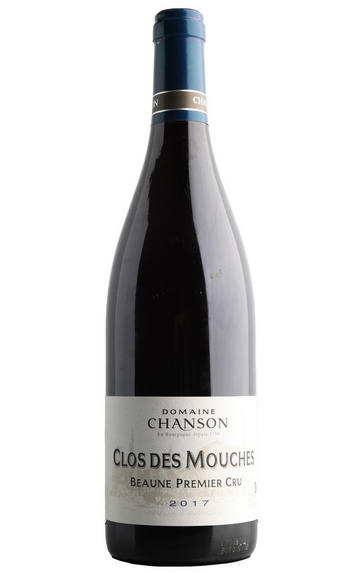
2017 Beaune Rouge, Clos des Mouches, 1er Cru, Domaine Chanson, Burgundy
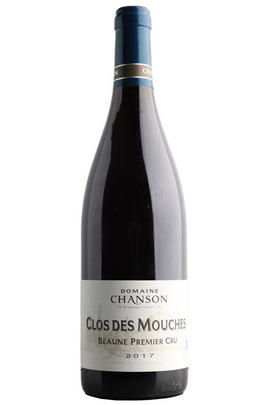
Critics reviews
Medium deep purple, this has a softer nose than the Marconnets. A gentle mixed red fruit style with a pleasing sweetness, and a little less acidity. The persistence is very good. This will be accessible early and should make friends. Chocolatey notes. Light well drained soil and good air circulation.
Jasper Morris MW, InsideBurgundy.com
This too displays moderate wood and menthol character on the attractively spiced nose where the lilac-inflected fruit profile derives more from the red side of the spectrum. There is a lovely sense of energy to the racy and intense medium weight flavors that reflect fine detail on the lingering finish that is also youthfully austere. This too is quite serious and at least some patience is strongly advised.
Drink from 2029 onward
Allen Meadows, Burghound.com (June 2019)
If you never tasted a good red Beaune, then this would be a good place to start, thanks to the fragrant red-fruit and floral nose, then the ripe and suave palate, where the tannins are already so well integrated that almost all you see is the fruit character that dances over them. Long and delicate finish.
Drink or hold
James Suckling, JamesSuckling.com (February 2019)
Another fine Clos des Mouches, this has a less vibrant hue than the 2019 with more development evident in the glass. Dusky, leafy, floral nose with a cool, restrained, autumnal style on the palate. Acidity more evident than the 2019 but the fruit is sweet and all the components make for a fine, balanced Pinot with potential for further ageing.
Drink 2023 - 2027
Andy Howard MW, Decanter.com (November 2022)
About this WINE
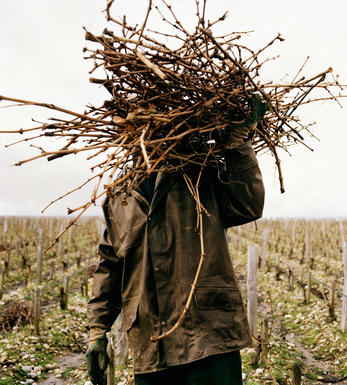
Domaine Chanson
Though modest in size, Chanson Père & Fils is one of the oldest of Beaune’s great négociant houses, having been founded in 1750 by Simon Verry. The Chanson family, already vineyard owners in Beaune, Savigny and Pernand, took control during the 19th century. In 1999 the company was sold to Bollinger, who appointed Gilles de Courcel to run the business in 2002. The company has kept its old headquarters and maturation cellars in the ‘bastion’, a late medieval stone tower which was one of Beaune’s principal fortifications, with a more modern vinification facility on the edge of town towards Savigny, built in 1974 and undergoing modernisation and extension between 2008 and 2010.
The wines are made by Jean-Pierre Confuron, of Domaine Confuron-Cotetidot in Vosne-Romanée, whose brother Yves supervises Gilles de Courcel’s family domaine in Pommard. The new team has made considerable improvements, beginning in the vineyards which are now ploughed and no longer fertilised. From 2009 the domaine vineyards will be organic. Unusually amongst the major négociants, Chanson reds are made with a good proportion of the stems included. The majority of the wines see about 30 per cent new oak during maturation, with François Frères favoured for red-wine barrels and Damy for white.
The Chanson domaine, increased to 45 hectares by some shrewd purchases in 2006, provides about a quarter of the company’s production which extends to Chablis, the Mâconnais and the Beaujolais. Its own vineyards are entirely in the Côte de Beaune.
Jasper Morris MW, Burgundy Wine Director and author of the award-winning Inside Burgundy comprehensive handbook.
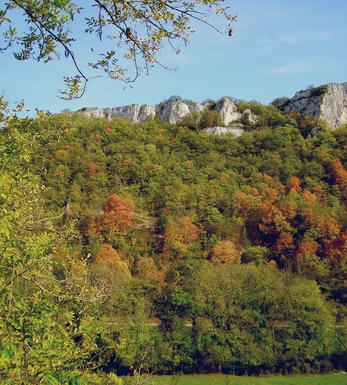
Beaune
The wines of Beaune are usually on the lighter side, especially if from the flatter vineyards on the Pommard side, or the sandier soils towards Savigny. The sturdiest wines with the greatest depth of flavour come from the steeper slopes overlooking the town itself.
The Hospices de Beaune charity auction on the third Sunday in November is one of the highlights of the year. The Hospices building, known as l'Hôtel-Dieu, is well worth visiting. Beaune is also home to several of the region’s best known merchants such as Maisons Louis Jadot and Joseph Drouhin.- 128 hectares of village Beaune and 52 hectares of Côte de Beaune
- 322 hectares of Premier Cru vineyards. The finest vineyards include Les Grèves, Clos des Mouches
- Recommended producers: Germain, Devevey, Domaine des Croix, Jadot, Drouhin, Camille Giroud.
- Recommended restaurants: Ma Cuisine (not least for the wine list), Le Conty
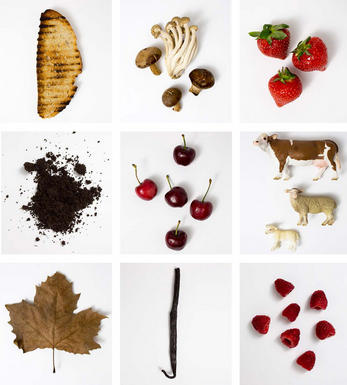
Pinot Noir
Pinot Noir is probably the most frustrating, and at times infuriating, wine grape in the world. However when it is successful, it can produce some of the most sublime wines known to man. This thin-skinned grape which grows in small, tight bunches performs well on well-drained, deepish limestone based subsoils as are found on Burgundy's Côte d'Or.
Pinot Noir is more susceptible than other varieties to over cropping - concentration and varietal character disappear rapidly if yields are excessive and yields as little as 25hl/ha are the norm for some climats of the Côte d`Or.
Because of the thinness of the skins, Pinot Noir wines are lighter in colour, body and tannins. However the best wines have grip, complexity and an intensity of fruit seldom found in wine from other grapes. Young Pinot Noir can smell almost sweet, redolent with freshly crushed raspberries, cherries and redcurrants. When mature, the best wines develop a sensuous, silky mouth feel with the fruit flavours deepening and gamey "sous-bois" nuances emerging.
The best examples are still found in Burgundy, although Pinot Noir`s key role in Champagne should not be forgotten. It is grown throughout the world with notable success in the Carneros and Russian River Valley districts of California, and the Martinborough and Central Otago regions of New Zealand.


Buying options
Add to wishlist
Description
This is a charming and delightful example of everything I love about 2017 reds; pale ruby in colour, with a seductive perfume of red berries, rose petals and a dash of pepper. The palate is open and pretty, with juicy and crunchy redcurrant and strawberry fruit, mouth-watering acidity and delicate, silken tannins. The finish has a chalky limestone freshness and a touch of creamy, spicy oak that will integrate further with time, though this it may prove difficult to resist the temptation to enjoy the wonderful balance and charm of this wine now.
Drink 2023 - 2032
Adam Bruntlett, Senior Buyer, Berry Bros. & Rudd
wine at a glance
Delivery and quality guarantee